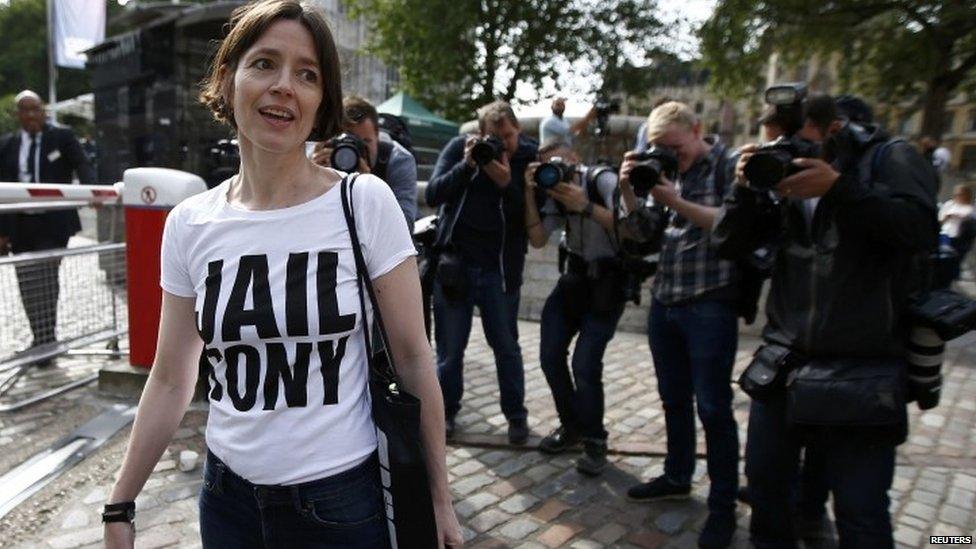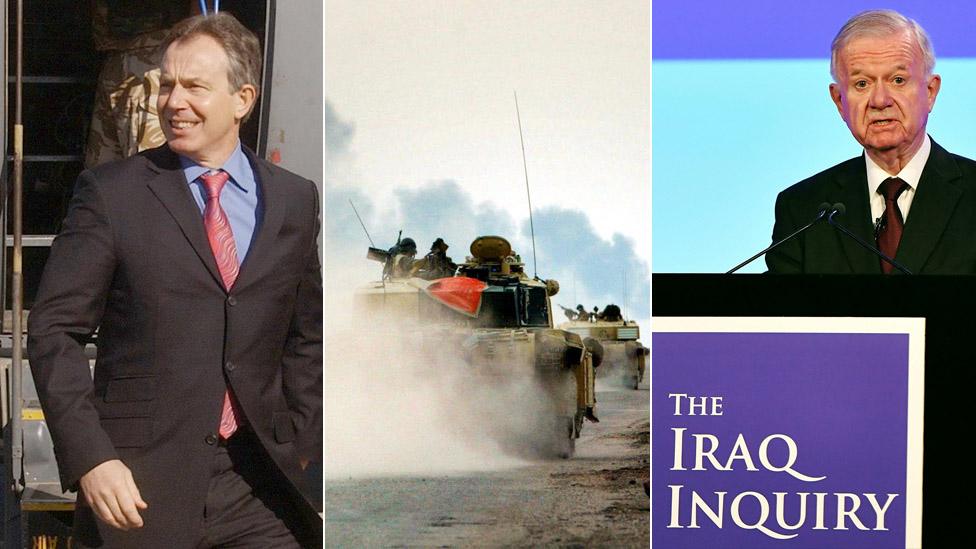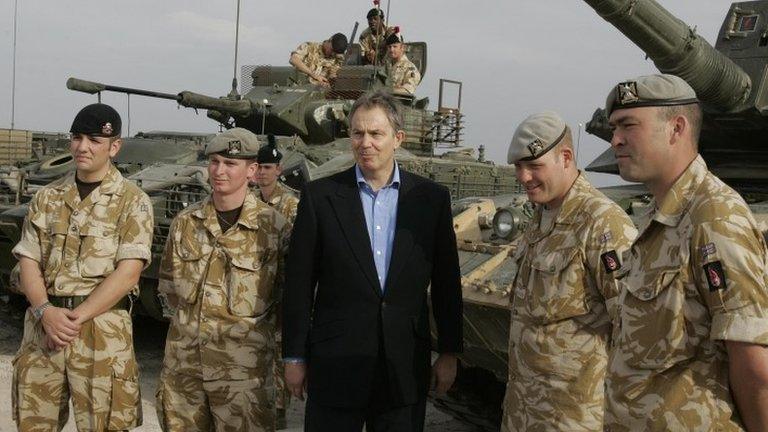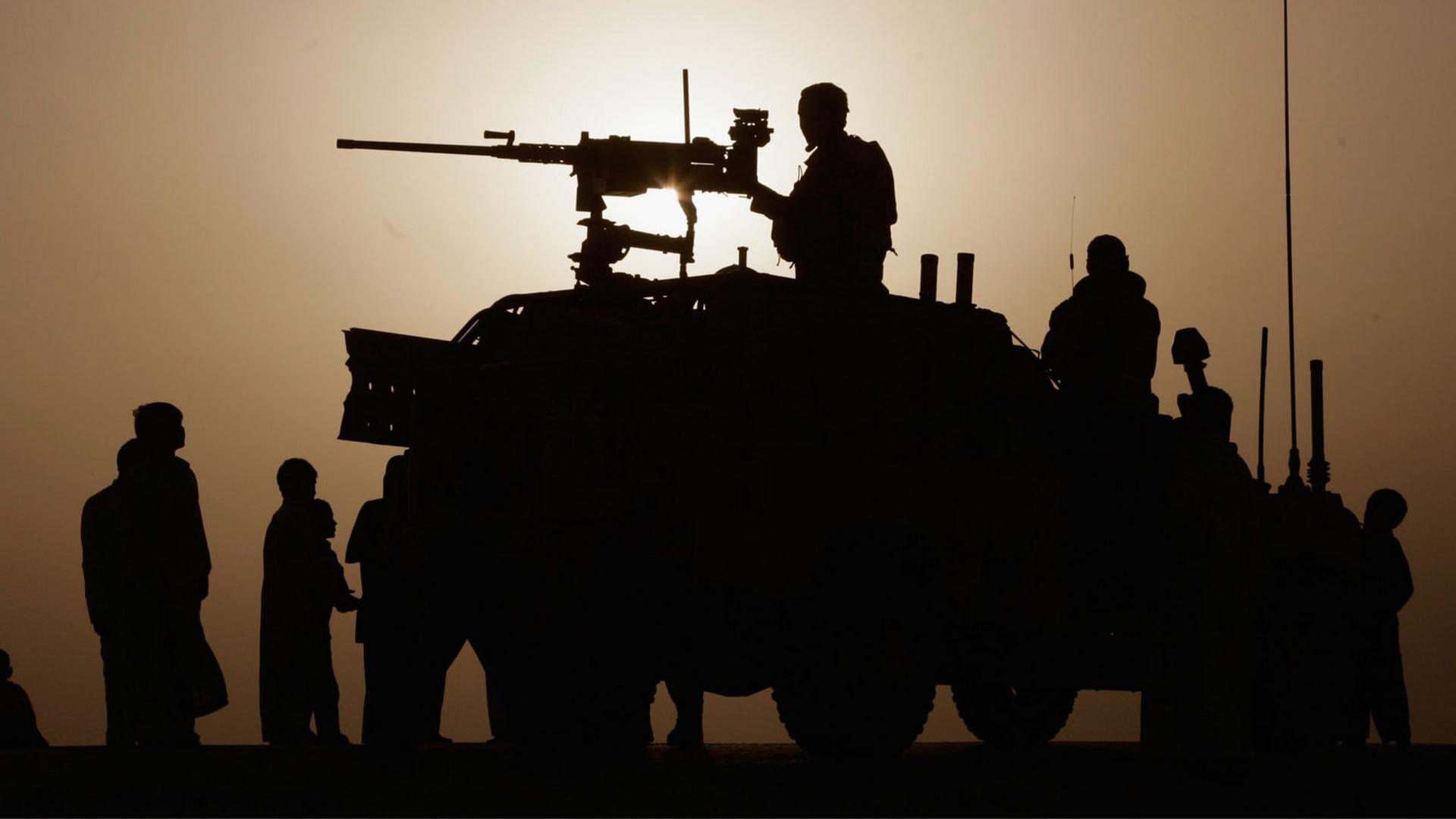Tony Blair stands by war decision but sorry for families
- Published
Tony Blair expressed sorrow, regret and apology
Tony Blair has apologised to the families of those killed in the 2003 Iraq War, accepting that they will never "forget or forgive him".
The former prime minister said he felt sorrow and regret beyond what "people may ever know" at the loss of life.
He accepted intelligence had been wrong and post-war planning had been poor.
But he insisted that he did what he thought was the "right thing" at the time and he still believed Iraq was "better off" without Saddam Hussein.
Mr Blair was criticised in the official Chilcot inquiry into the 2003 war, which said his government overstated the threat posed by Saddam Hussein, sent ill-prepared troops into battle and had "wholly inadequate" plans for the aftermath.
There was no "imminent threat" from Saddam and the intelligence case was "not justified", the report concluded.
'Agonising'
In response, Mr Blair said the decision to commit troops was the "most agonising and momentous" decision in his decade as prime minister and said he would "carry it with me for the rest of my days".
He said he took he full responsibility "without exception and without excuse" for the decisions he made and hoped future leaders would learn from the mistakes that were made.
"I feel deeply and sincerely in a way that no words can properly convey the grief and sorrow of those who lost ones they loved in Iraq - whether our armed forces, the armed forces of other nations or Iraqis.
"The intelligence assessments made at the time of going to war turned out to be wrong, the aftermath turned out to be more hostile, protracted and bloody than ever we imagined.... and a nation whose people we wanted to set free from the evil of Saddam became instead victims of to sectarian terrorism.
"For all of this, I express more sorrow, regret and apology than you may ever know or can believe. "
Answering questions from journalists for more than 90 minutes, Mr Blair said the report had disproved those who claimed he had manipulated the intelligence in some way, misled his colleagues and Parliament or concluded a secret agreement with President Bush to take the UK to war, saying he "could look people in the eye" and say that he had acted in good faith.

There have been calls for legal action against Mr Blair
He said he had no regrets in removing Saddam Hussein, who he believed posed a real threat to his own people and "world peace" and rejected claims the war was responsible for the rise of so-called Islamic State and its capture of much of Iraq in the past few years.
For all the challenges it faced, Iraq had an elected government regarded as legitimate and committed to fighting terrorism.
"The world was, and is, in my judgement a better place without Saddam Hussein," he said.
"Secondly, I will never agree that those who died or were injured made their sacrifice in vain. They fought in the defining security struggle of the 21st Century against the terrorism and violence which the world over destroys lives... and their sacrifice should always be remembered with thanksgiving and honour."
'Not dishonest'
Asked what specific mistakes he had made, he said he would not have "relied" on US assurances about post-war planning, the Cabinet would have had access to the full legal advice and he could have better anticipated how Iran and Syria would intervene to support the post-war insurgency - although he stressed this would not have altered his decision.
He stressed the risks of non-intervention, saying that more people had died in Syria after the decision not to intervene, than in Iraq, and questioned what he said was a lack of focus in the report on the "political and military strategy" for fighting the scourge of global terrorism.
"What I am trying to do today is explain why I acted as I did. What more can I do than say 'this why I took the decision I did'. Disagree with me fine but stop saying I was lying or I had some sort of dishonest or underhand motive.
"The reason I can't depart from the decision I made is I look at the world today and I am afraid I do not believe that we are safer now than we were back then."
In a statement, the then foreign secretary Jack Straw also defended his role: "With the benefit of hindsight, different decisions would have been made on Iraq... but the decisions made by me and others can only properly be judged in the context of the time."
Current Labour leader Jeremy Corbyn has said those responsible for committing the UK to war on a "false pretext" must examine their conscience and "face up to the consequences".
As protests against the Iraq War and its aftermath took place in central London, a spokesman for the families of the 179 Britons who lost their lives said they were exploring all their options, including the possibility of legal action.
Reg Keys, whose son died in Iraq in 2003 and stood against Mr Blair in the 2005 general election, said: "We all know who the key players are... who took part in this most shambolic episode in British politics. We would like to see all those key players face some form of accountability."
- Published6 July 2016

- Published6 July 2016

- Published6 July 2016

- Published6 July 2016